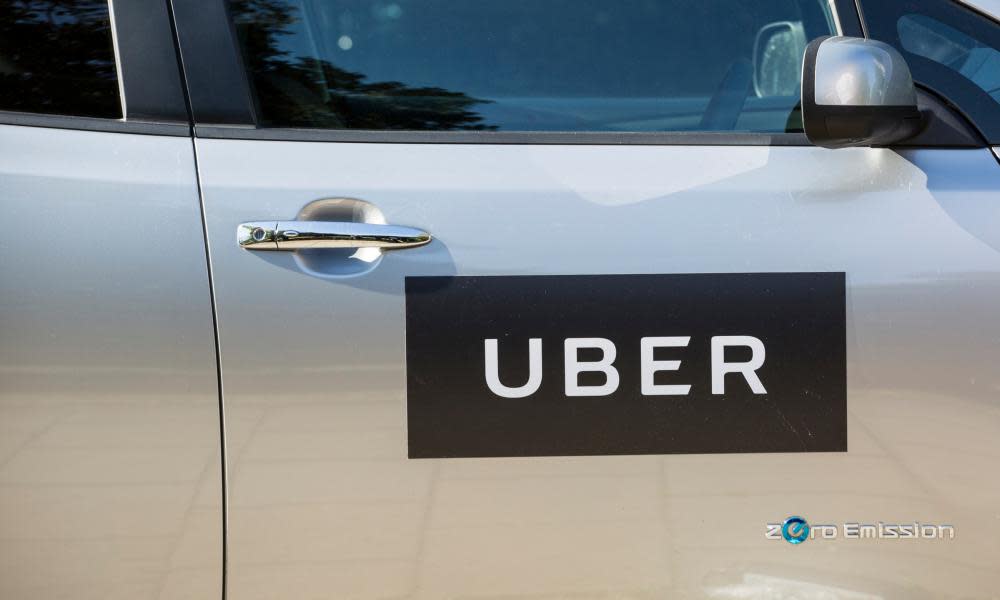UK minimum wage law 'should cover more self-employed workers'

The government should step in to help those suffering from extreme low pay by extending minimum wage legislation so that it covers minicab drivers and other parts of the 4.8 million-strong self-employed workforce, a thinktank has urged.
The Resolution Foundation, which concentrates on developing policies to help those on low and modest incomes, said ministers should embrace the idea as part of its drive to tackle low pay and insecurity.
A report by the thinktank said ministers needed to strengthen controls in the gig economy both by enforcing current minimum wage rules and broadening protection to include new groups of workers.
It found one in five employees were classed as low-paid, in other words earning less than two-thirds of the typical weekly wage of about £500. But for those classified as self-employed, half were earning less than this £310 low-pay threshold.
The thinktank said the introduction of the government’s ‘national living wage’ – which pays £7.50 an hour for over-25s – has reduced low pay among employees but would not affect the self-employed, because they are not entitled to it. There was a danger that firms could reclassify workers as self-employed to avoid paying the legal minimum wage.
The report – part of the thinktank’s submission to Matthew Taylor’s review of modern work practices – said the government should not only ensure that the current law was properly enforced but also extend the law’s reach.
“Many of those in the gig economy as it currently stands are likely to be ‘workers’, an employment status with greater rights than the self-employed, meaning they should already receive at least the minimum wage,” the thinktank said. “Greater enforcement is needed to ensure these workers get the rights to which they are entitled.”
In the case of those people that are genuinely self-employed, the Resolution Foundation said there should be a test – building on existing employment law – to see whether a person working at an “average” pace would be able to earn the minimum wage by doing their job.
While accepting that the minimum wage could not simply be extended to cover all self-employment, the principle of this test should be applied to self-employed people where the price of their labour was fixed by a firm.
Affected firms would include gig economy-style platforms claiming to simply connect the self-employed to customers but setting the price for work done.
The report said that extending the test would bring most of those who are self-employed in the gig economy and other parts of the self-employed workforce under the protection of the minimum wage for the first time. Those helped would be 170,000 self-employed workers in taxi operations, including both Uber and minicab drivers, and 40,000 postal and courier service workers. Some, but not all, of the 150,000 self-employed hairdressers and 80,000 cleaners would also benefit from greater protection.
Conor D’Arcy, a policy analyst at the Resolution Foundation, said: “The UK’s labour market has been very successful at creating jobs in recent years. However, far too many of those jobs offer very low pay and precious little security.
“This is especially true of the growing army of the self-employed. While many are higher earners who benefit from significant flexibility, around half fall below the low pay earnings threshold of just £310 a week. The government can start by extending minimum wage protections to those self-employed people whose prices are set by a firm. This would mean that self-employed people in the gig economy would be given protection against extreme low pay for the first time ever.
“Ministers shouldn’t stop there either. Stronger enforcement to clamp down on bogus self-employment is a prerequisite. But moving to narrow rights, benefits and tax gaps between the self-employed and employees would at last create a level playing field in the labour market. This would help to ensure that people’s employment status was based on the job that they do, rather than on a firm’s willingness to pay the minimum wage or the wish to avoid paying a fair share of tax.”

 Yahoo News
Yahoo News 
